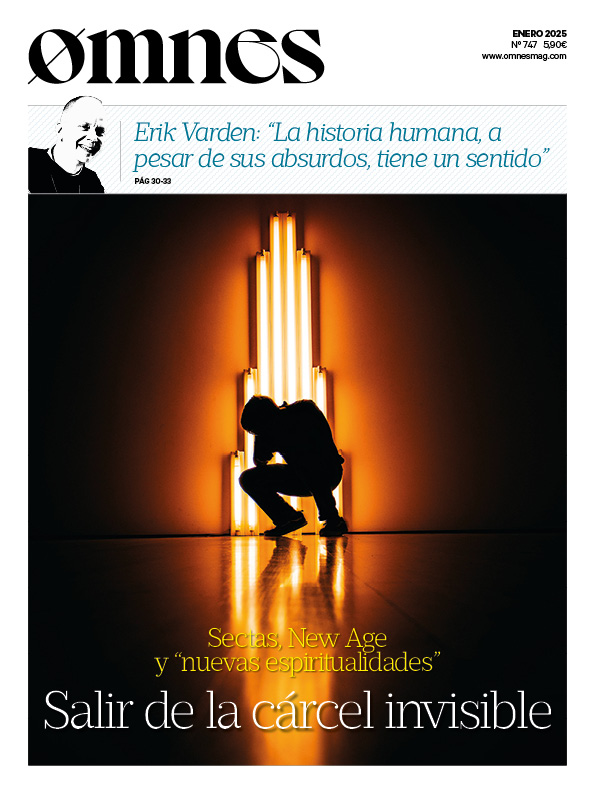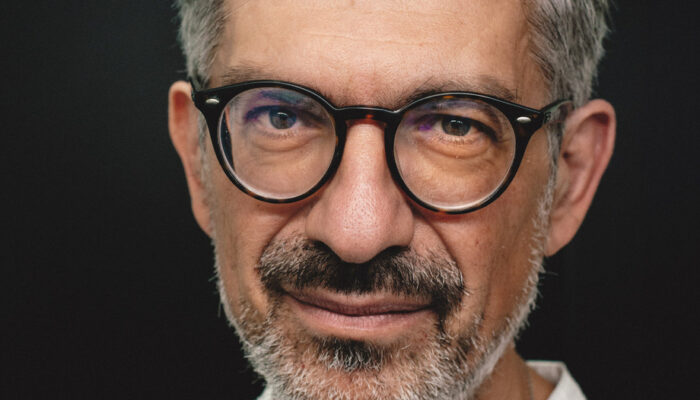It is a simple house in the Carabanchel neighborhood of Madrid. Sister Myriam Yeshua welcomes me and, after crossing a small garden, invites me inside her congregation's house, where she has been living for almost a year. I sit in an armchair in the living room. She sits across from me, waiting for the interview to begin. I take out my tape recorder and ask her permission to record the conversation. "It's just so I don't miss anything when transcribing it.". She smiles and gives me her permission. Myriam Yeshua (the name she adopted when she took her vows) has lived in Syria for four and a half years. There she has witnessed the suffering of the Syrian people in Aleppo, one of the cities hardest hit by the war.
"I have nine siblings and the four youngest of us are religious."she says when I ask her about her vocation. Myriam Yeshua wanted to enter the "aspirancy" when she was 11 years old. At that time she had two religious sisters. "My father thought I was too young and told me to finish high school first and, if I was really called by God, to enter the convent afterwards. But I just reached that difficult age of adolescence, I began to meet people, to make friends..., and the idea went away.". When he finished high school he began to study history. "Then my sister, the one who is just older than me, told me that she was also going to the convent. It was a tremendous shock for me.". She explains that from that moment on she began to rethink what she had felt as a child. Of course, it was a difficult decision, "but I was still encouraged to give that yes to God.".
After her novitiate and years of formation, she was assigned to Egypt. She lived for two years in Alexandria where she studied Arabic. Then "the Latin rite bishop of Aleppo asked us to go to Syria to found".. Thus, in 2008, at the age of 24, she moved to Aleppo together with two other Egyptian sisters. There they began their apostolate. The three sisters took charge of the cathedral and a residence for university students. "some of whom were my age". The girls were all Christians (mostly Orthodox), since the bishop's idea was to start doing charity first at "home". "The apostolate with them was very beautiful. We went on excursions, we invited them to Sunday Mass and, although they were Orthodox, many of them came; every night whoever wanted to pray the rosary with us, we talked with them... We had to help them in those first difficult years far from their families"..
In 2011 the war started. Yeshua never thought that something like this could happen in Syria. "Syria was a very peaceful country. Muslims had a lot of respect for Christians. There was a respect that I often don't find in Europe."he says. When the violence began to become generalized, the superiors of the order asked them if they wanted to remain in place: "We all decided to stay.".
In the midst of these difficulties, the sisters tried to continue their apostolate. "Before the war began, it was normal for two people to go to Mass every day, sometimes more. Five at the most. But when the fighting began, it was incredible how the number of faithful who went to daily Mass, to pray the rosary, to adore the Blessed Sacrament, began to grow....". Sister Yeshua tells us that the people suffered a lot, "but I also saw an impressive trust in God."
Yeshua regrets the precariousness of the situation in Aleppo: practically inaccessible food, electricity supply cuts, difficulties in obtaining gas.... "Now that it is winter and there is no heating because there is no gas, people make fires inside their houses with whatever they can find. In the squares there are no more trees because people have cut them down to make fires for heating or cooking. Even the benches in the parks have only the iron structures left, because people have also torn up the wooden planks to use them as firewood.".
But what strikes Yeshua most is how, despite the difficulties, young people struggle to finish their degrees or attend Mass, "Sometimes in very difficult situations, because the bombings and shootings are continuous. Many times they put their lives in danger. They are not afraid. Quite the contrary. Because they know that they are in a permanent risk, and that at any moment they could die, they are constantly prepared: they go to mass every day, they go to confession frequently, they pray the rosary...".








